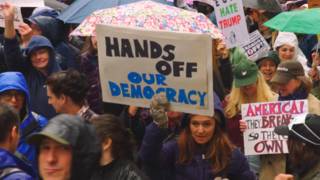
First it was Teresa Nieves, shot in the head by her husband two days after he returned from Afghanistan. Next came Jennifer Wright, mother of three, strangled in her bedroom. Then Andrea Floyd, shot in the head the same day she asked for a divorce. Then came Marilyn Griffin, stabbed 50 times and set on fire.
Four sergeants on the North Carolina Fort Bragg army base have killed their wives in the last six weeks. Three of the soldiers were from the Army’s Special Operations unit and had recently returned from Afghanistan; the fourth was from an airborne unit. Two killed themselves after killing their wives, and two others sit in jail.
Fort Bragg is the Army’s headquarters for the Special Forces and Special Operations units, and the base has sent hundreds of soldiers to fight in the so-called “war on terrorism.” The vast Ft. Bragg military installation is also the heart of a larger military community that includes thousands of Army families and retirees.
Few people had paid attention to the rash of killings until the Fayetteville Observer published a story last Friday pointing out that they had all been carried out by local soldiers.
Every year, about 1,400 women are killed by their husbands. Studies show that military couples have a rate of domestic abuse sometimes two to five times higher than the general population. A Yale University study published in the American Journal of Public Health in January found that men involved in combat were responsible for 21 percent of the cases of spousal abuse reported in the survey.
According to the Pentagon’s Family Advocacy Program, there were almost 11,000 substantiated cases of physical, emotional or sexual spouse abuse among military families last year. But military domestic violence is notoriously under-reported.
Guest:
- Christine Hanson, executive director of the Miles Foundation, a non-profit that works with victims of violence associated with the military. Email: milesfdn@aol.com.
- “Ms. Smith,” (not her real name) a victim of domestic violence from her husband, a naval officer. She chose to go by “Ms Smith” after one of the first military investigations into domestic violence, called “Operation Ms. Smith.”
- Sunera Thobani, Professor of Women s Studies at the University of British Columbia and former President of the National Action Committee on the Status of Women, Canada’s largest feminist organization.
- Maj. Jan Northstar, spokesperson for Fort Bragg.
Related link:











Media Options